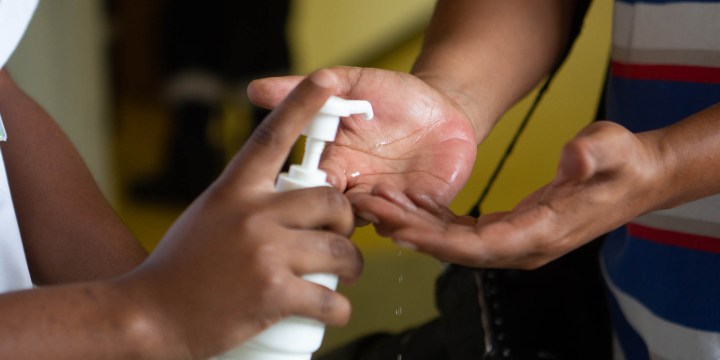Coronavirus: Good News
Lockdown Booze Ban: Alcohol plants change tack to produce hand sanitisers

Where bottle after bottle of popular liqueurs, whiskies and brandies were produced before lockdown last week, alcohol plants started running again on Wednesday to produce much-needed hand sanitisers.
After Covid-19 lockdown regulations forced them to temporarily close their doors, factories that were in full-scale production of alcoholic beverages are now back in business making free hand sanitiser for South African hospitals, clinics and NGOs.
Earlier in March 2020, President Cyril Ramaphosa declared the outbreak of Covid-19 in South Africa as a State of National Disaster. After a week of restricting sales of alcohol, the president announced on 22 March that the country would go into lockdown on 27 March 2020 for three weeks. During the lockdown, no alcohol will be sold. As non-essential services, factories making alcoholic beverages were also required to shut down their plants.
But a few days later, the factory doors were opened again as companies started making much-needed hand sanitiser.
At Distell’s factories in Goudini, Wellington and Stellenbosch, production of hand sanitiser started up earlier this week with estimates being that the plants will produce up to 40,000 litres a day. The company has already allocated 300,000 litres of hand sanitisers to hospitals, clinics and NGOs, and is also selling pure alcohol to other manufacturers.
“We are determined to support our government in its bid to halt the current rapid spread of Covid-19 and in the absence of a vaccine, good hygiene remains one of the most effective options to do so,” said Richard Rushton, Distell Group CEO.
The company has committed 100,000 litres of alcohol, which will be used to produce sanitisers as well as a variety of other hygienic and sanitising products. Production only started this week as the glycerine they needed to complete the process was stuck at Cape Town harbour and they had to wait for it to be released.
Alcohol for the hand sanitiser – 20,000 litres a day – will be produced by the Wellington and Goudini factories that normally make Olof Bergh brandy, Bains Whiskey and Amarula, and the sanitiser will be blended in the company’s blending cellars in Stellenbosch. The company is estimating that it will be able to produce about 40,000 litres of sanitiser a day.
“The sanitisers will be distributed free to vulnerable communities across South Africa as a way to encourage good hygiene practices. The company will work closely with the government to identify these communities, and support the roll-out of the sanitisers.
“The company said it recognised there was an acute shortage of pure alcohol to produce hand and surface sanitisers, which are desperately needed in hospitals and households. We fully understand that our position as a leading player in the alcoholic beverages industry comes with a societal obligation. We want communities to benefit from our presence and we are determined to rise to the challenge,” said Rushton.
The hand sanitiser will be supplied in bulk to hospitals and in 5-litre containers to NGOs. Workers at Distell have volunteered to pack the hand sanitisers.
South African Breweries have also started producing hand sanitiser.
“The demand for alcohol-based sanitiser has continued to sky-rocket in the face of this pandemic. The South African Breweries has adapted its operations to address the shortage of hand sanitiser.
“The sanitisers SAB have been able to produce contain 80% alcohol, which is exactly what the healthcare sector is in dire need of,” said Zoleka Lisa, the vice-president of Corporate Affairs at SAB. The company has donated 10,000 bottles of hand sanitiser to the Riverpark clinic in Alexandra near Johannesburg. DM/MC
"Information pertaining to Covid-19, vaccines, how to control the spread of the virus and potential treatments is ever-changing. Under the South African Disaster Management Act Regulation 11(5)(c) it is prohibited to publish information through any medium with the intention to deceive people on government measures to address COVID-19. We are therefore disabling the comment section on this article in order to protect both the commenting member and ourselves from potential liability. Should you have additional information that you think we should know, please email [email protected]"





 Become an Insider
Become an Insider